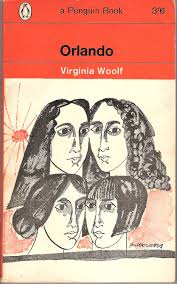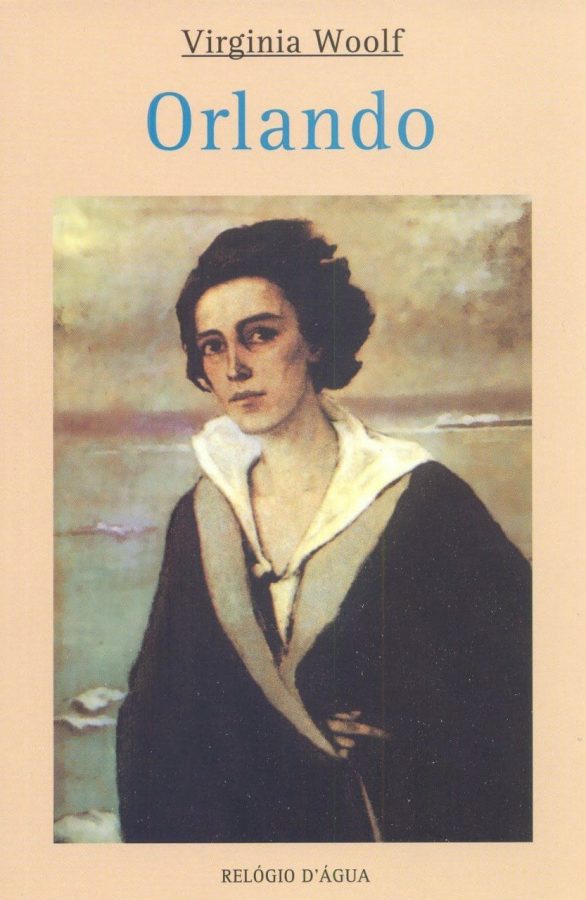“Orlando” – Quarantine Book Club #4
While we have ample time to sit at home and think, Virginia Woolf’s “Orlando” could be worth tackling!
November 5, 2020
Virginia Woolf’s Orlando might be one of the most mind-boggling books I’ve ever read.
(This “book-club” is meant to recommend a variety of texts, both classics and new fiction. While Orlando is a work of Woolf’s, I do not think it has the same reputation as other classics.)
Woolf’s “biography” of the fictional Orlando spans over 300 years: from the late sixteenth century, through the industrial revolution, and past WWI. During their lifetime, Orlando lives in royalty and in poverty, in love and alone, as a man and as a woman.
Her approach to the biography seemed to mock traditional biographies which focus on the mundane details of a figure’s life; in Orlando, Woolf explores the intricacies of her subject’s identi
ty, and ventures not to simplify anything. For the complexity of the novel, this serves to give readers a complete look at the many paradoxes and nuances of Orlando’s character (but for understanding the 300 pages, things get a little confusing.)
“Illusions are to the soul what atmosphere is to the earth.”

I hardly know where to start in my blurb on Orlando, so not to overwhelm those of you who use this book club for a recommendation or synopsis; do I begin with the dedication to her girlfriend Vita Sackville-West? Do I begin with the modern approach on Orlando’s identity as both a man and a woman? Do I begin with the experience of one individual spanning centuries of cultural flux?
I’ll stick to the constants.
Woolf uses physical nature as a constant while she endeavors to describe an unedited glimpse into human nature (the ENTIRE human nature, beyond details of sex or time.) Orlando spends t
he entirety of their 300 years writing a single poem, trying to fit every experience into these lines – and finding there is always another one to fit in. “The Oak Tree”, Orlando’s masterpiece, is never revealed to the readers, yet the contents are no different than Woolf’s biography of Orlando’s lifetime.
“In short, every secret of a writer’s soul, every experience of his life; every quality of his mind is written in large in his works; yet we require critics to explain the one and biographers to expound the other.”
My annotations in my copy of Orlando are desperate attempts to identify “truth” behind the words Woolf writes. So many details are absurd and spectacular, an expanse of space and time and yet limited to the one individual in question. As Orlando’s individuality changes throughout the text, I search for what constants remain; perhaps those unchanged qualities are the basis of human nature?
Orlando boggles my mind. They defy the limits of what one individual may experience, yet approach situations with their own history as a basis of forming impressions. For a text published in 1928, an approach to identity that reaches beyond social position and gender alignment may have been too boggling for Orlando to be received at all by popular crowds; even the need to refer to Orlando as “they” is debated in modern setting, yet through reading their experience readers see how useful this pronoun truly is in capturing one’s entire identity!
“Let other pens treat of sex and sexuality; we quit such odious subjects as soon as we can.”
I hate describing Woolf as “ahead of her time.” What does this even mean? Woolf’s accomplishment in writing Orlando was not to reach another time, but to find a story that exists despite time. Our ability to reflect modern society in her work is what makes the text a deserving piece of literature; there is some truth to it. I am intrigued by the claim she makes in trying to find a constant that exists beyond one’s surroundings. Maybe there is a depth to the individual that requires a disconnection from the ties of gender – and otherwise society at large. Maybe?
Her writing is dense and the story requires readers to go back and reread pages from time to time. I can confidently say I have not stopped trying to understand Orlando since I finished it this past summer, but for that I think it’s a worthwhile read.
